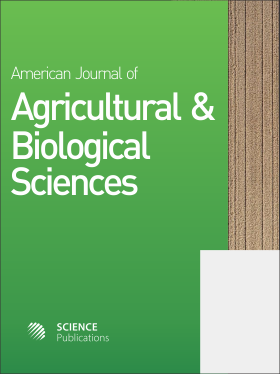Altered Reproduction in Clarias gariepinus Exposed to Industrial Effluents
- 1 Department of Zoology, Faculty of Science, University of Ibadan, Ibadan, Oyo State, Nigeria
Abstract
Problem statement: Reproductive success is a key factor in determining species survival and the unregulated discharge of industrial effluents into rivers and streams in a developing country like Nigeria, can impair reproductive ability in non-target organisms like fish. Fish, generally accumulate contaminants from their environment in their tissues and these can be transmitted through the yolk lipids to the eggs. Approach: Prespawning Clarias gariepinus female brooders were exposed to composite effluent mixtures from a food and beverage industry (discharged into Ona river) for a period of thirty days to determine its effect on growth and fertility/reproductive success (viability of eggs and survival of the F1 generation fries). Physico-chemical parameters of effluent samples and exposure concentrations were analyzed and effluent sample was further analyzed for heavy metals (Fe, Pb, Cd, Ni, Zn, Cu, Mn). Results: Exposure to the effluents caused decreased weight (-7.33%) and egg production (198 eggs) in the highest exposure concentration. Significant decreases (p<0.05) in the percentage of viable eggs (71.25, 62.48 and 30.12%) of exposed females and percentage survival of F1 generation fries (68.68, 46.42 and 22.33%) with increasing effluent concentration was also observed in the order 0.00%> 4.40%> 6.60% and there were no viable eggs and fingerlings in the highest exposure concentration(13.20%). Effluent sample and exposure concentrations had acidic pH and low DO values while effluent sample contained Fe and Pb in concentrations above the specified standard by the National Environment Standards and Regulation Agency (NESREA) for food and beverage industry effluent discharged into surface waters. Conclusion: The toxic nature of these effluents on the reproductive success of C. gariepinus (a commercially important freshwater fish in Nigeria) is of great concern to sustainable fisheries if stringent measures to monitor effluent quality discharge into this river are not implemented.
DOI: https://doi.org/10.3844/ajabssp.2012.61.70

- 4,034 Views
- 3,730 Downloads
- 5 Citations
Download
Keywords
- Reproductive success
- food and beverage industry
- viable eggs
- F1 generation fries
- Clarias gariepinus
